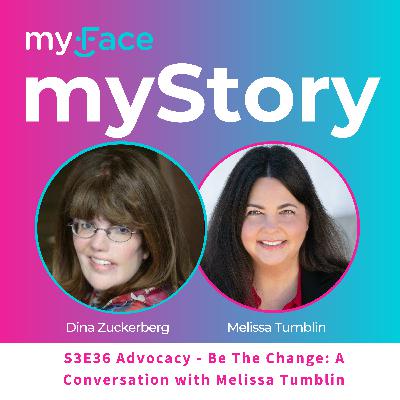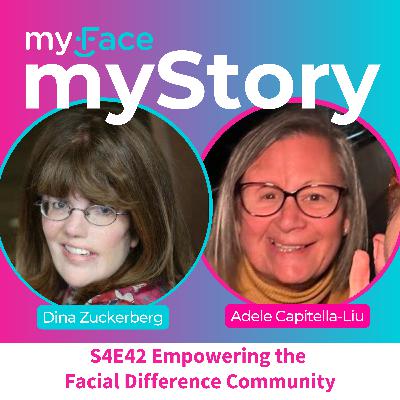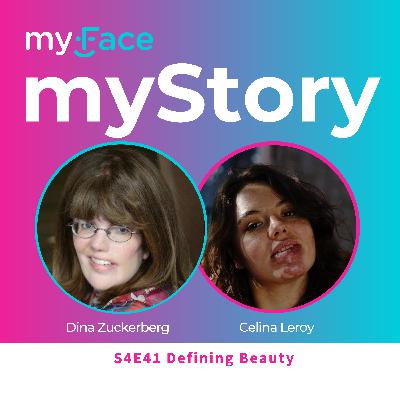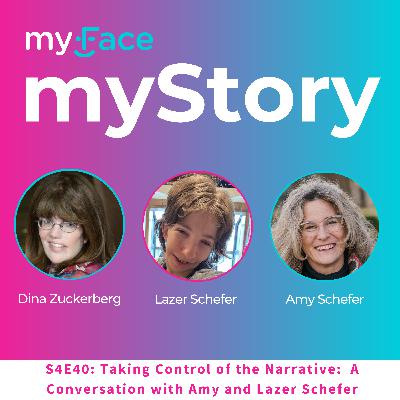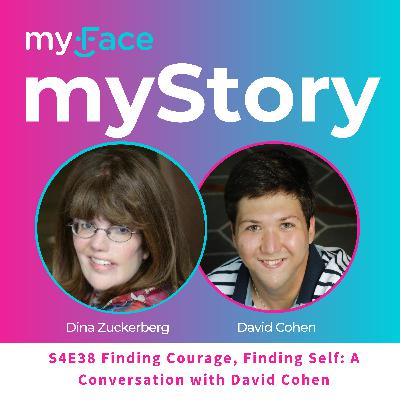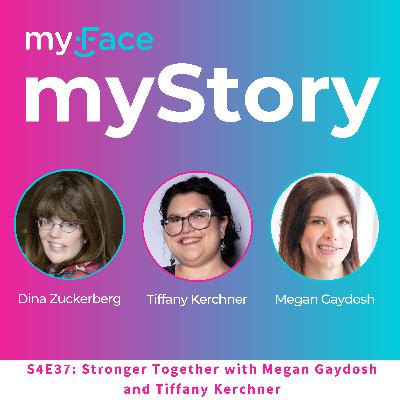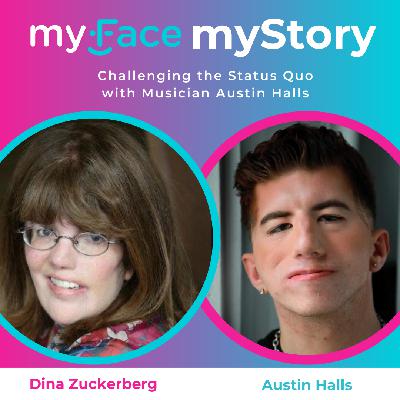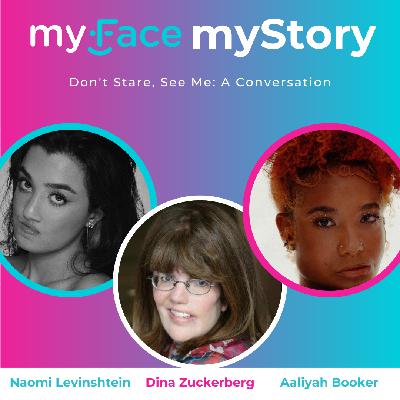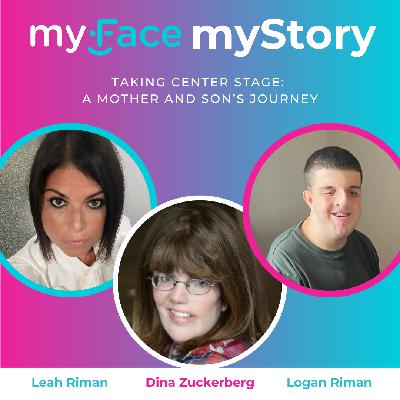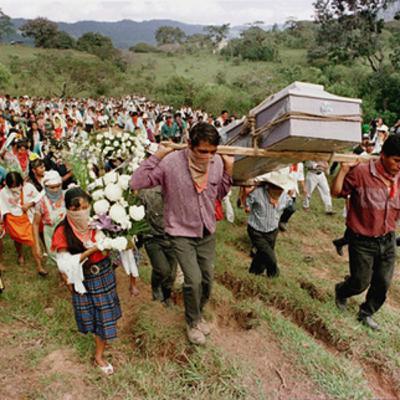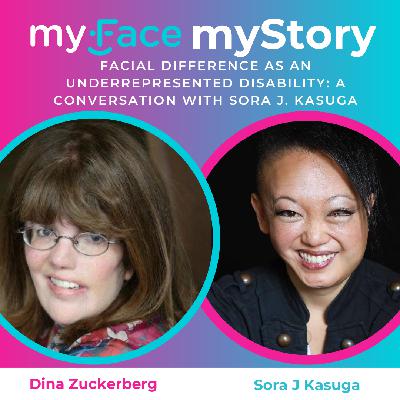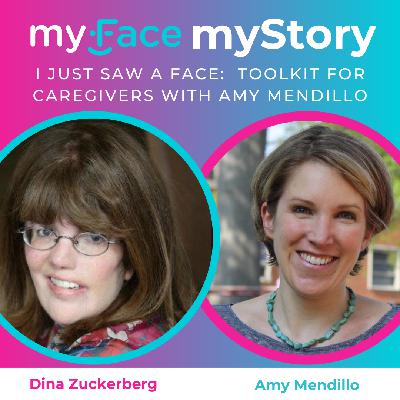Advocacy - Be The Change: A Conversation with Melissa Tumblin
Description
This month on the myFace, myStory podcast, Dina Zuckerberg welcomes Melissa Tumblin, a passionate advocate for the hard of hearing and deaf community. Melissa, the founder and Executive Director of Ear Community shares her remarkable journey—from navigating her child's microtia and atresia diagnosis to leading pioneering research efforts and advocating tirelessly for legislation like Ally's Act.
- [Announcer] Welcome to "myFace, myStory: "Voices from the Craniofacial Community," with your host, Dina Zuckerberg.
- Hello and welcome to "myFace, myStory: "Voices from the Craniofacial Community." Whether you're watching on YouTube or listening on Apple Podcasts, quickly subscribe now so that you'll never miss a future episode. And if you're a fan of "myFace, myStory," rate and review the program on Apple Podcasts so we can get our message of inclusivity and empowerment to more people. I'm your host, Dina Zuckerberg, the Director of Family Programs at myFace. I was born with a cleft lip, a hearing loss, and no vision in my left eye. "myFace, myStory" is about people like us being seen and heard, about sharing stories within the craniofacial community and with others. Today, I will be joined by Melissa Tumblin. Melissa Tumblin is the founder and Executive Director of the Ear Community Organization and the Microtia and Atresia Support Group on Facebook serving the microtia and atresia community. She's an advocate for the deaf and hard-of-hearing community, and a hearing health activist, and assists on many boards and councils including the NIDCR, National Institutes for Dental and Craniofacial Research; the Friends of the CHHC, Congressional Hearing Health Caucus; and on the advisory board for a biotherapeutics company working on 3D printed regenerated ears. She has presented accredited presentations for audiology, educational organizations, and has also presented at many hearing-device-manufacturer meetings, microtia and atresia surgical conferences, and at the FDA. She launched the Microtia and Atresia Clinic at the Vanderbilt University Medical Center, and champions genetic research for the microtia and atresia community as a co-investigator on a whole genome sequencing genetic research grant with Harvard, Vanderbilt, and the MIT Ford Institute. Melissa wanted the children and adults in her community to have a special day, so she established National Microtia and Atresia Awareness Day taking place every November 9th. She's the recipient of the Family Leadership Award for EHDI Excellence, and the Oticon Medical Advisory Award, including the Legacy Award for helping the microtia community in South Africa. She has over 20 years of experience in marketing, medical devices, and electrosurgical equipment, and holds a Bachelor's Degree in Biology and Psychology from the University of Colorado Boulder. Welcome, Melissa. I really look forward to our conversation.
- Thank you, Dina.
- Yes. So can you share the personal journey with your daughter, Ally, and take us back to the day she was born and how you found out about her diagnosis?
- Of course. Well, first, Dina, thank you so much for having me on the podcast today. It's quite an honor. I appreciate everything you do. And there need to be more Dinas in our world.
- So thank you.
- Thank you.
- So as a parent, you know, we are very excited to start families and have children. And on the day that Ally was born, to our surprise, and I apologize if I get a little emotional, but, you know, I had quad screenings done. I went to all my ultrasounds. I did everything right as a mom carrying a child. And to our surprise, Ally was born missing her right ear. And as a mother, the first thing I did was blame myself. I thought, "Oh no, you know, did I really eat something "or drink something that I wasn't supposed to "that I maybe didn't know about, didn't show up on a label?" Because I was good. And in the delivery room, you know, I delivered Ally via C-section. My husband was the first to see her. And I just remember him coming over to me saying, "You know, there's something a little different "about her ear." And I didn't know what that meant. But when they brought Allie over to me, I saw her sweet, beautiful little smile and her beautiful face. And I was just so happy she was with us finally. And we were just definitely surprised during our delivery. And we did ask our doctors, you know, "Do you know why her ear's missing, or what happened?" And there was silence in the delivery room, which caused a little bit of concern for us. So we didn't understand what had happened. So that was our experience, even though we were so excited that she was here.
- So for those who may not know, can you explain what microtia and atresia is and then how rare is it?
- Absolutely, so first of all, this is my daughter Ally.
- Sweet.
- And as you can see, her right ear is missing. And she has a little crooked smile. She has slight craniofacial microsomia because the one jawbone is shorter on the other side. And when children have microtia and atresia, they're often missing ears. And so, when a child is born without an ear, the ear canal is typically missing as well. So that results in hearing loss. And here in the United States, it's a 1 out of every 6,000 births that this happens.
- Okay, so it's pretty rare.
- It's very rare. And it's rare enough to where it's not typically on most doctors' radar. So oftentimes, families deliver children, and this was our experience as well with the majority of our community. The doctors really just don't know what to tell you. And you feel, you know, a little lost. You know, when you're told something's rare, you think, "Gosh, are we the only family in our state, "you know, with a child like this?" Or, "What doctors can we go to?" And sometimes they just don't often have all the answers. You end up going through a lot of doctor's appointments trying to piece together the puzzle pieces.
- So how did this lead you to become an advocate for the hard-of-hearing and deaf community, particularly focusing on your experience with microtia and atresia?
- Yeah, so when I was marketing medical device equipment, I was a product manager. And I was over, you know, technical equipment in the OR. And so I learned how to be an advocate for the patient in the OR, and to also help the surgeon, you know, make sure everything was okay. And when I had my own children, I think I was surprised that there wasn't someone there to advocate for me. So this came out in me, and I quickly realized that if we didn't get the answers from our doctors, there must be many other families that are struggling along the way as well. And so, that led into me creating a support group on Facebook. And that support group's called the Microtia and Atresia Support Group. Until this day, it is the largest support group out there. And within a year, we already had 1,000 people join from all over the world. And what was crazy to me is that it was the same stories. It didn't matter if you were from the UK or Mexico or, you know, wherever, it was the same questions. Like, why did this happen? Did I do something during my pregnancy? Will my child be okay? Will they be picked on or bullied? And, you know, what's a BAHA? That's the specific type of hearing device that our community uses. And just all kinds of questions. And I couldn't believe it, that we know so much about the ear and hearing loss in today's world, that all these families have these questions.
- Yeah. And I was gonna say there really is that moment when you realize, "Oh, wait, I'm not the only one."
- Absolutely, absolutely.
- That there's whole community of people that feel the same way, that have the same questions. Yeah.
- And also, you know, when I started my support group, Dina, I had to think long and hard before I hit that button to create it that I'm going to put my child out there, you know, to try and help the community. And so I had a lot of thoughts go through my mind before I started that. And here we are today, a nonprofit organization and the popular community for these families to find. Because they all feel lost and alone.
- Mm-hmm.
- Yeah.
- So tell us about the Ear Community Organization that you started.
- Yeah, so Ear Community is a nonprofit that serves the microtia and atresia community specifically. And our organization started just after I started the support group, so around 2010. And I was encouraged by some of my now sponsors to create a nonprofit. It would be easier for them to work with me and help because we have events and, you know, we donate hearing devices and try to help those in need within the community. And yeah, I never thought I'd be running a nonprofit, but here we are.
- And you do it well from what I've seen. You're doing an amazing job.
- Thank you, thank you.
- And you have a small staff, right? It's just basically...
- Yeah, I'm pretty much a one-woman show, Dina.
- That's what I thought.
- And I do have one employee that helps me with our events. And yeah, we're very grassroots, but it's where it starts. You know, it's from the passion and in recognition of seeing what your community is lacking and what it needs. That's where it begins.
- I always say that. It's like, what does the community need and how do we fill that gap for them? Yeah.
- Absolutely. And you wouldn't know unless you're a parent or an individual that is experiencing the struggles along the way.
- I agree. So speaking of struggles, what are some of the biggest challenges faced by individuals with microtia and atresia? And how does your community support them? And you've touched a little bit on this, but...
- Right, yeah, of course. Thank you for asking. So, with Ear Comm

